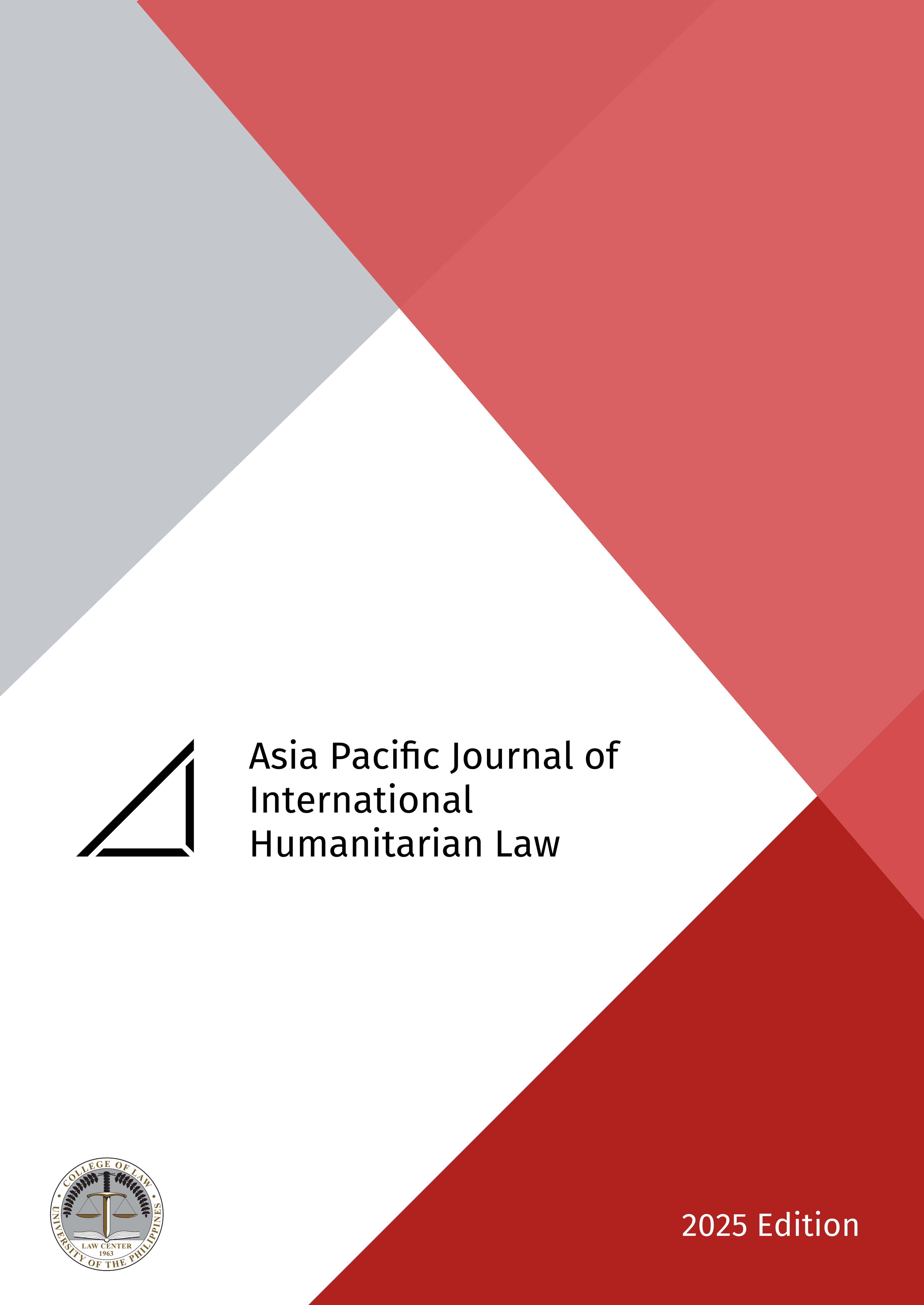
We are pleased to announce the publication of the Asia-Pacific Journal of International Humanitarian Law's 2025 edition.
The Asia-Pacific Journal of International Humanitarian Law (APJIHL) is a publication of the Institute of International Legal Studies-University of the Philippines Law Center (UP-IILS). The Journal seeks to produce peer-reviewed scholarly articles, book reviews, and commentary on significant developments and current issues in international humanitarian law and related fields. It has a special focus on the Asia-Pacific region, and is published once a year.
The 2025 Edition includes the following articles:
Of Divine Wars: A Comparison of Hindu Teachings with International Humanitarian Law and Jus Ad Bellum by Wamika Sachdev
The Polymorphic Environmental Impact of the USSR and US Wars on Afghanistan: A Forgotten Prism of International Law by Sayed Qudrat Hashimy and Jackson Simango Magoge
India’s Regulatory and Ethical Stance on Autonomous Weapons Systems by Anviksha Pachori
Guarantees of Non-Repetition as Reparations: Exploring a Developing Modality in the Context of the Extraordinary Chambers in the Courts of Cambodia by Nathanael Thomas
Environmental Obligations of Outer Space in Armed Conflicts: The Source, Interpretation and Compliance by Xinyi PAN and Xidi CHEN
-
Preliminary Pages
-
Of Divine Wars: A Comparison of Hindu Teachings with International Humanitarian Law and Jus Ad Bellum
-
The Polymorphic Environmental Impact of the USSR and US Wars on Afghanistan: A Forgotten Prism of International Law
-
India’s Regulatory and Ethical Stance on Autonomous Weapon Systems
-
Guarantees of Non-Repetition as Reparations: Exploring a Developing Modality in the Context of the Extraordinary Chambers in the Courts of Cambodia
-
Environmental Obligations of Outer Space in Armed Conflicts: The Source, Interpretation and Compliance
Call for Papers
We invite the submission of articles on subjects related to international humanitarian law, humanitarian policy or humanitarian action, provided the article has not been published or accepted elsewhere. In order to qualify for submission, an article must either be authored by someone from, or based in, the Asia-Pacific region or, alternatively, be about the Asia-Pacific region.

